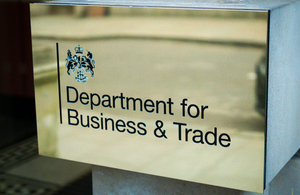British businesses celebrate as rules of origin to South Korea extended
The UK has secured a two-year extension to rules which help British companies to access lower or zero tariffs when selling goods to South Korea.

- UK goods exports to South Korea remain eligible for reduced or zero tariffs after UK secures extension
- Manufacturing sector expected to benefit, including automotive and food and drink, keeping British goods competitive in Korea
- Negotiations for enhanced UK-South Korea trade deal to launch later this year
The UK has secured a two-year extension to rules which help British companies to access lower or zero tariffs when selling goods to South Korea.
The extension has been secured under the UK-South Korea free trade agreement and comes as welcome news for businesses who can continue to avoid the high tariffs imposed by South Korea on products entering the country.
It also comes ahead of the launch of negotiations on a new, modernised trade deal between the UK and South Korea which will cover new sectors like digital, expected before the end of the year.
South Korea is the 13th largest economy in the world and set to grow rapidly. Thanks to a burgeoning middle class, its import market is expected to grow 45% by 2035. The UK’s trade with Korea has more than doubled since the original FTA was negotiated.
Goods make up the majority of UK exports to South Korea, with £7.3 billion worth exported last year. A broad range of British manufacturing sectors are expected to benefit from the extension, including food and drink and automotive, which is the second largest British export to South Korea.
Minister for International Trade Nigel Huddleston said:
This is fantastic news for UK businesses who can continue selling their brilliant goods with confidence to South Korea, a fast-growing market of the future with a high demand for quality British products.
It provides welcome certainty as we prepare to kickstart negotiations on an exciting new trade deal set to turbocharge our already thriving £18 billion trading relationship and boost British exports.
When the UK negotiated the original trade agreement with South Korea, rolled over from our membership of the EU, time-restricted clauses were agreed to allow for the use of EU content in UK products in meeting the EU-South Korea rules of origin and on shipping goods via the EU. Both clauses were set to expire on 1 January 2024.
The extensions will apply for a further two years while the UK and South Korea work on new, permanent rules as part of an enhanced free trade agreement. Today’s agreement allows for both parties to extend this period further, if needed.
Society of Motor Manufacturers and Traders Chief Executive Mike Hawes said:
We welcome this announcement as it avoids the re-imposition of duties from January 2024. In the first half of the year, South Korea was our seventh biggest car export market and the third biggest supplier of new passenger cars for UK buyers – so duty liabilities would have been bad for both sides.
We look forward to the start of negotiations and swift conclusion of a modernised trade deal that delivers more benefits to our respective automotive sectors, in particular boosting trade in EVs and related technologies.
Food and Drink Federation Director of Sustainability and Growth Balwinder Dhoot said:
This is welcome news for food and drink manufacturers and gives continued certainty to exporters until a new and ambitious agreement is negotiated. This will help businesses to export more products and ensures continued flexibility to use seasonal imported ingredients that complement our industry’s use of domestic produce.
Talks for a new trade deal are anticipated to kick off this year. A public consultation was completed earlier this year to identify business priorities for the deal.
The new deal will upgrade our trading agreement with South Korea, ensuring a more modern and fit-for-purpose deal that meets the specific needs of the UK. This is expected to include provisions for digital trade and dedicated help for smaller businesses, which will support economic growth and jobs.